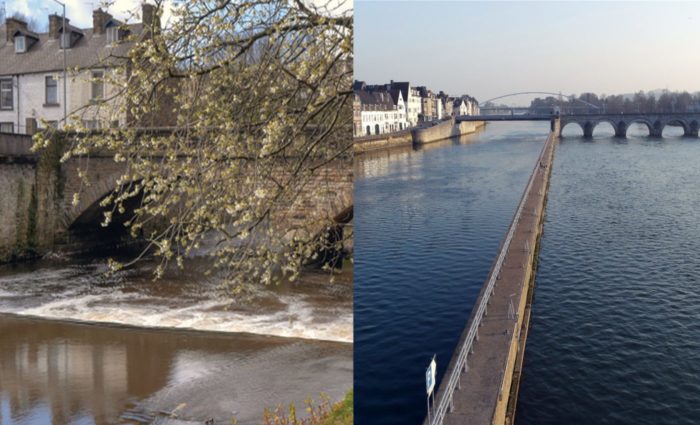Water@Leeds water governance webinar series – Creative ways toward healthier human-river relationships

In recent years, research in various disciplines has demonstrated the importance of inclusive and transdisciplinary modes of water governance (if this is even the right word) for both human and non-human health and wellbeing. Bringing this about in real world contexts of inequalities and competing interests can, however, be something else entirely! This challenge has encouraged scholars to experiment, to push their usual modes of engagement and thinking across disciplines and publics.
Social anthropologist Megan Clinch and artist Ruth Levene will share some of their experiences of working with a range of disciplines and communities on pressing water-related issues in the Calder River catchment (Yorkshire). They will be in dialogue with heritage scholar Christian Ernsten, sharing aspects of his ‘River Love’ project which aims to make the River Meuse/Maas (France, Belgium, Netherlands) drinkable again.
Megan Clinch m.clinch@qmul.ac.uk (Queen Mary University of London, https://www.qmul.ac.uk/hub/global-health-hub/meet-dr-megan-clinch) is engaged in a number of research projects that explore how different forms of investigation, experimentality, evidence, and evaluation are understood and negotiated in the development of complex public health and primary care interventions. Drawing on her interest in the politics and practice of evidence, she is also currently working with Arts Catalyst as part of a co-inquiry based in the Calder Valley in Yorkshire that focuses on water governance in relation to health, wellbeing and the resilience of communities and ecologies.
Ruth Levene (https://ruthlevene.co.uk/about) is an artist based in Sheffield, Yorkshire working in video, performance, events, digital drawings, walks, installations and participatory work. She is curious and concerned by the complex systems we live by, our relationship to the natural world and the environmental and ecological crisis. She is currently exploring policy making, water cycles, farming and walking infrastructure.
Christian Ernsten’s (University of Maastrict, https://www.maastrichtuniversity.nl/c.ernsten ) research is situated at the intersection of the fields of heritage studies, urban studies and postcolonial studies. He specializes in the study of the heritage practices involved conservation and design of urban and natural landscapes, both locally and globally. Currently, he explores the interrelations between rivers’ cultural and natural heritage in the Maastricht and Cape Town regions, applying, amongst others, transdisciplinary research methodologies, such as embedded ethnographic research, walking as a form of embodied research, and photographic recordings.
Image Credits
(Left side) River Calder, Padiham, Lancashire. Image author David Dixon https://www.geograph.org.uk/photo/2896889 https://creativecommons.org/licenses/by-sa/2.0/ Note: image has been cropped left and right.
(Right side) Maastricht, the Netherlands. View of Stenenwal in Wyck, Saint Servatius Bridge and the river Meuse from Wilhelmina Bridge. The pier connects the two bridges. Image author Kleon3 https://commons.wikimedia.org/wiki/User:Kleon3 https://creativecommons.org/licenses/by-sa/3.0/deed Note: image has been cropped left and right.
